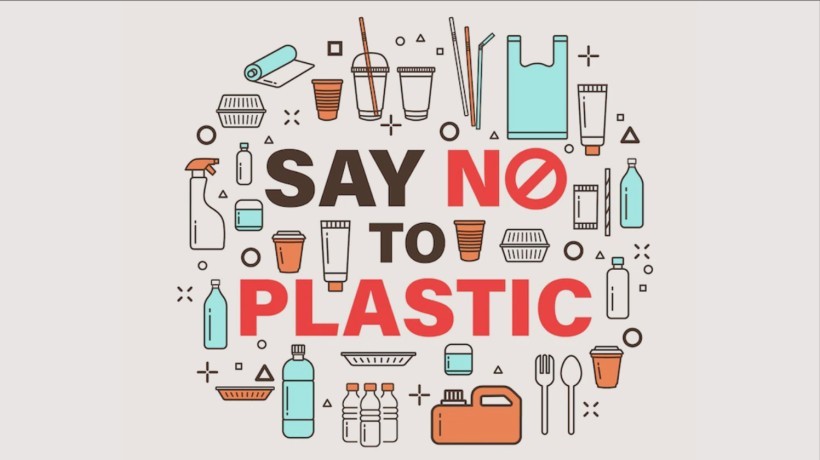Kerala HC Bans Single-Use Plastics Statewide
Kerala HC Bans Single-Use Plastics Statewide
Why in the News ?
The Kerala High Court has issued a ban on single use plastic in eateries, weddings, government functions, and tourist-heavy hilly areas, effective October 2, citing the threat to wildlife and urging safe water alternatives and public awareness. The suo motu case, presided over by Justice Gopinath P, addresses the growing concern over plastic waste dumping and its environmental impact.
Court-Imposed Ban on Plastic Use:
- The Kerala High Court expressed concern over irresponsible plastic disposal harming ecosystems.
- From October 2 (Gandhi Jayanthi), single-use plastics will be banned in:
○ Hilly tourist areas
○ Eateries and weddings
○ Events hosted by government agencies
- Banned items include:
○ Plastic water bottles (<5L)
○ Soft drink bottles (<2L)
○ Plastic cups, plates, food containers, and straws
○ Plastic bakery boxes
Environmental and Wildlife Concerns
- The court flagged the danger posed to wildlife, citing cases like elephants consuming plastic waste in Kallar near Munnar.
- Plastic waste dumping in open spaces, waterbodies, and improper disposal in plastic dump yards poses a grave risk to all life forms.
- The judgment emphasizes preventing plastic pollution in sensitive ecological zones.
Recommendations for Implementation
- Directives were issued for:
○ Setting up kiosks for clean drinking water at tourist spots and public events.
○ Providing glass or steel bottles as alternatives.
- The State government and local bodies must:
○ Curb dumping in waterbodies.
○ Raise public awareness on the hazards of plastic and promote sustainable alternatives.
- The Kerala State Pollution Control Board is tasked with enforcing these measures and monitoring compliance.
About Single-Use Plastics and India’s Regulatory Measures :
What are Single-Use Plastics (SUP)?
- Single-use plastics are items meant for one-time use before disposal.
- Includes plastic bags, straws, cups, stirrers, food packaging, and bottles.
Legal and Regulatory Measures
- Plastic Waste Management Rules (2016 & 2022):
○ Ban on plastic bags <50 microns (2016); <75 microns (2022).
○ Ban on specific SUP items like plastic earbuds, straws, flags, plates, etc.
○ EPR (Extended Producer Responsibility) mandates producers manage plastic till end-of-life.
Enforcement and Monitoring
- CPCB and SPCBs oversee compliance.
- Directions to industries to stop raw material supply for banned items.
- Licensing conditions prohibit SUP sale; violations invite penalties under Environment Protection Act (up to ₹1 lakh or 5 years’ jail).
- Environmental Damage Compensation and local body fines applicable.
Initiatives and Alternatives
- Swachh Bharat Mission 2.0 promotes:
○ 100% waste segregation, Material Recovery Facilities (MRFs), and hotspot elimination.
○ Promotion of cloth/jute bags, compostable plastics.
- Reuse in cement plants and road construction.
- Initiatives: India Plastic Challenge, India Plastics Pact, Project REPLAN, GoLitter Project.
- India is a signatory to MARPOL against marine pollution.
To address the plastic waste issue, the court has recommended the use of reusable water bottles, including copper water bottles, as an eco-friendly alternative to plastic water bottles. The judgment also emphasizes the need for stricter enforcement by the pollution control board to prevent plastic waste dumping and the proliferation of plastic dump yards.




